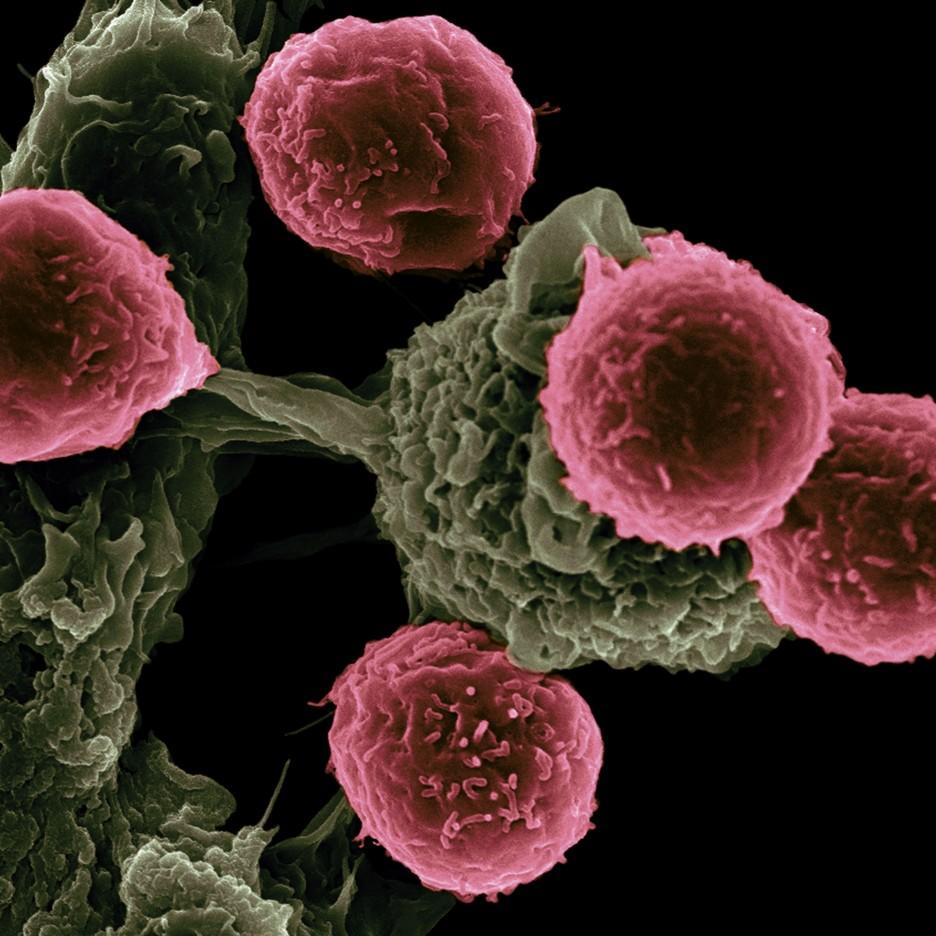 |
Treatment vaccines can help the immune system learn to recognize and react to antigens and destroy cancer cells that contain them. Credit: NCI and Victor Segura Ibarra and Rita Serda |
CANCER DIGEST– Dec. 17, 2022 – Early results of a preliminary clinical trial shows that a combination therapy for stage 3/4 melanoma that has spread to lymph tissues in the body reduced recurrence and death by 44 percent.
The results were announced in a joint press release from Moderna, Inc. and Merck, Inc. at the Dec. 10-13 annual meeting of the American Society of Hematology in New Orleans.
The clinical trial involving 157 melanoma patients is testing the safety and effectiveness of combining Merck’s immunotherapy drug pembrolizumab (Keytruda®) and a personalized vaccine made using similar technology that resulted in Moderna’s COVID-19 vaccine.
The vaccine uses mRNA technology to create a neoantigen, or a molecule that stimulates an immune response. In this case the vaccine contains the instructions to make up to 34 antigens, substances that trigger an immune response, based on DNA characteristics of each patient’s cancer. In other words the vaccine stimulates an immune attack tailored to specific features of that patient’s tumor.
In the trial half of the patients received the combination vaccine with Keytruda and half received Keytruda alone. In the vaccine arm half the patients received a low dose every week, and the other half received a higher dose every other week for up to nine weeks. The results showed a 44 percent improvement in recurrence free survival for up to three years for those receiving the combination therapy versus those treated with Keytruda alone.
"The results of this randomized Phase 2b trial are exciting for the field," said Jeffrey S. Weber, MD, PhD, principal investigator of the study and Deputy Director of the Perlmutter Cancer Center at NYU Langone. "These data provide the first evidence that we can improve on the rates of recurrence-free survival achieved by PD-1 blockade in resected high-risk melanoma. These findings also provide the first randomized evidence that a personalized neoantigen approach may be beneficial in melanoma."
The companies plan to discuss these results with regulatory authorities and initiate a Phase 3 study in melanoma patients in 2023.
The study is funded by Moderna, Inc. and Merck, Inc. Dr. Weber is a paid consultant for Merck and Moderna.
Sources: Moderna and Merck press releases, and ClinicalTrials.gov


No comments:
Post a Comment